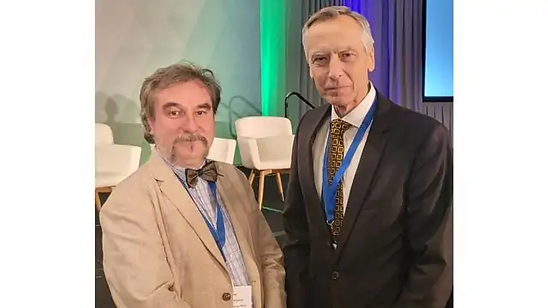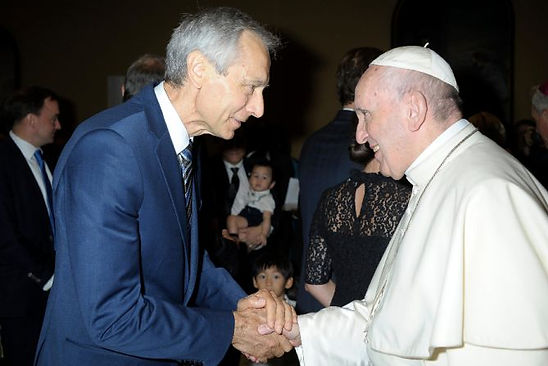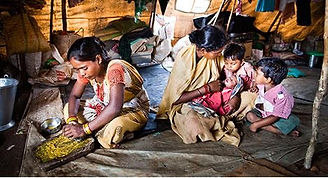Tag: Religious freedom
-
IRF Summit 2022: Religious Freedom for Everybody, Everywhere, All the Time
Former Ambassador Sam Brownback and Katrina Lantos Swett hosted the event in Washington, D.C. “We’ve got a simple model: it’s religious freedom for everybody, everywhere, all the time.” by Marco Respinti Marco Respinti (left) with Ján Figeľ, former European Commission special envoy for the promotion of freedom of religion outside the EU, at the IRF
-
Ján Figeľ: ‘It’s a pity there is no EU religious freedom envoy anymore’
Ján Figeľ, special envoy for the promotion of freedom of religion outside the EU from 2016 to 2019, meets Pope Francis in 2018./ Vatican Media/Ján Figeľ personal archive. Bratislava, Slovakia, Sep 10, 2021 / 04:15 am On the eve of Pope Francis’ visit to Slovakia, the country appointed Anna Záborská, a former member of the
-
Advancing Religious Freedom in Different Political Regimes
Why is religious freedom important? Because it is a measure, principle, and instrument of humanization and civilizational process. It makes every society and time more humane, more respectful, and just. It is important because freedom of religion or belief (FoRB) is an expression of human dignity belonging to each person and community, society, nation. The
-
Current Challenges to Religious Freedom Panel at NET@WORK conference on 25 November 2020
NET@WORK online conference of Wilfried Martens Centre for European Studies. Speakers: Heiner Bielefeldt, Ján Figeľ, Rebecca Shah Moderator: Miriam Lexmann 25 November 2020 The Martens Centre held its 2020 edition of NET@WORK, on the theme ‘Geopolitical Europe – Adapting, Reshaping, Engaging’. Held in a digital format, this conference presented eight panels of expert speakers over
-
We need a ‘climate change’ in matters of religious freedom
Interview with Ján Figel’, the former EU Special Envoy for the promotion of freedom of religion or belief outside the EU For the second time since its establishment by the United Nations in 2019, the “International Day Commemorating the Victims of Acts of Violence Based on Religion or Belief” was observed on 22 August. The
-
Europe and the challenge of religious freedom
The European Union’s Special Envoy for promoting the Freedom of Religions and Belief outside of Europe will soon be appointed. Maragaritis Schinas, vice-president of the European Commission, announced the Office’s re-establishment in a tweet on July 8. The announcement brought to a close what had been at times a very lively debate. The president of
-
EU politicians and religious leaders demand reinstatement of religious envoy
The previous religious envoy was influential in securing the release of the Pakistani Christian, Asia Bibi, from a death sentence in 2019. Calls are growing for the European Union to reinstate its Special Envoy on Religious Freedom, after the post was abolished by the new Brussels Commission under Ursula Von Der Leyen. “In some countries,
-
COVID-19 Crisis, Human Dignity and Freedom of Religion or Belief
The theme I wish to explore briefly is the relation between human dignity, religious freedom and current corona virus pandemic. Evidently, medical situation in the world is critical in many countries. It will take time and make serious impact on economies, on social situation and on human, interpersonal and international relations. Our world will change.
-
¿Llegará al mundo el impactante mensaje de Asia Bibi?
Un mensaje desde lo más profundo del corazón que contrasta con la superficialidad con que vivimos en otras partes del mundo. La pakistaní, ya plenamente libre y reunida con su familia, vive en Canadá como refugiada Hace unos meses pudimos narrar con verdadera alegría el fin del cautiverio de Asia Bibi, la mujer pakistaní de
-
EU told to strengthen mandate of religious freedom envoy
The European Union needs to develop an overarching religious freedom policy strategy, and strengthening the mandate of the Special Envoy is an important step towards this, writes CSW’s Amy Shepherd for Brussels-based news site The European Post. The position of the Special Envoy for Freedom of Religion or Belief (FoRB) outside the EU was created




